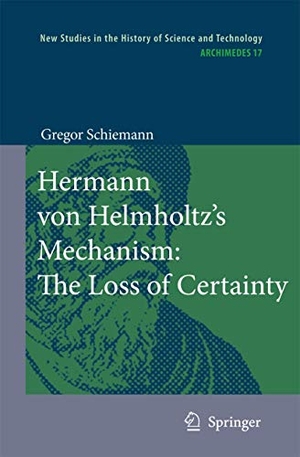Für statistische Zwecke und um bestmögliche Funktionalität zu bieten, speichert diese Website Cookies auf Ihrem Gerät. Das Speichern von Cookies kann in den Browser-Einstellungen deaktiviert werden. Wenn Sie die Website weiter nutzen, stimmen Sie der Verwendung von Cookies zu.
Cookie akzeptieren
Gregor Schiemann
Hermann von Helmholtz¿s Mechanism: The Loss of Certainty
- Springer Netherlands
- 2010
- Taschenbuch
- 296 Seiten
- ISBN 9789048174133
Focusing on Hermann von Helmholtz, this study addresses one of the nineteenth century¿s most important German natural scientists. Among his most well-known contributions to science are the invention of the ophthalmoscope and grou- breaking work towards formulating the law of the conservation of energy. The volume of his work, reaching from medicine to physiology to physics and epis- mology, his impact on the development of the sciences far beyond German borders, and the contribution he made to the organization and popularization of research, all established Helmholtz¿s prominence both in the academic world and in public cultural life. Helmholtz was also one of the last representatives of
Mehr
Weniger
zzgl. Versand
in Kürze